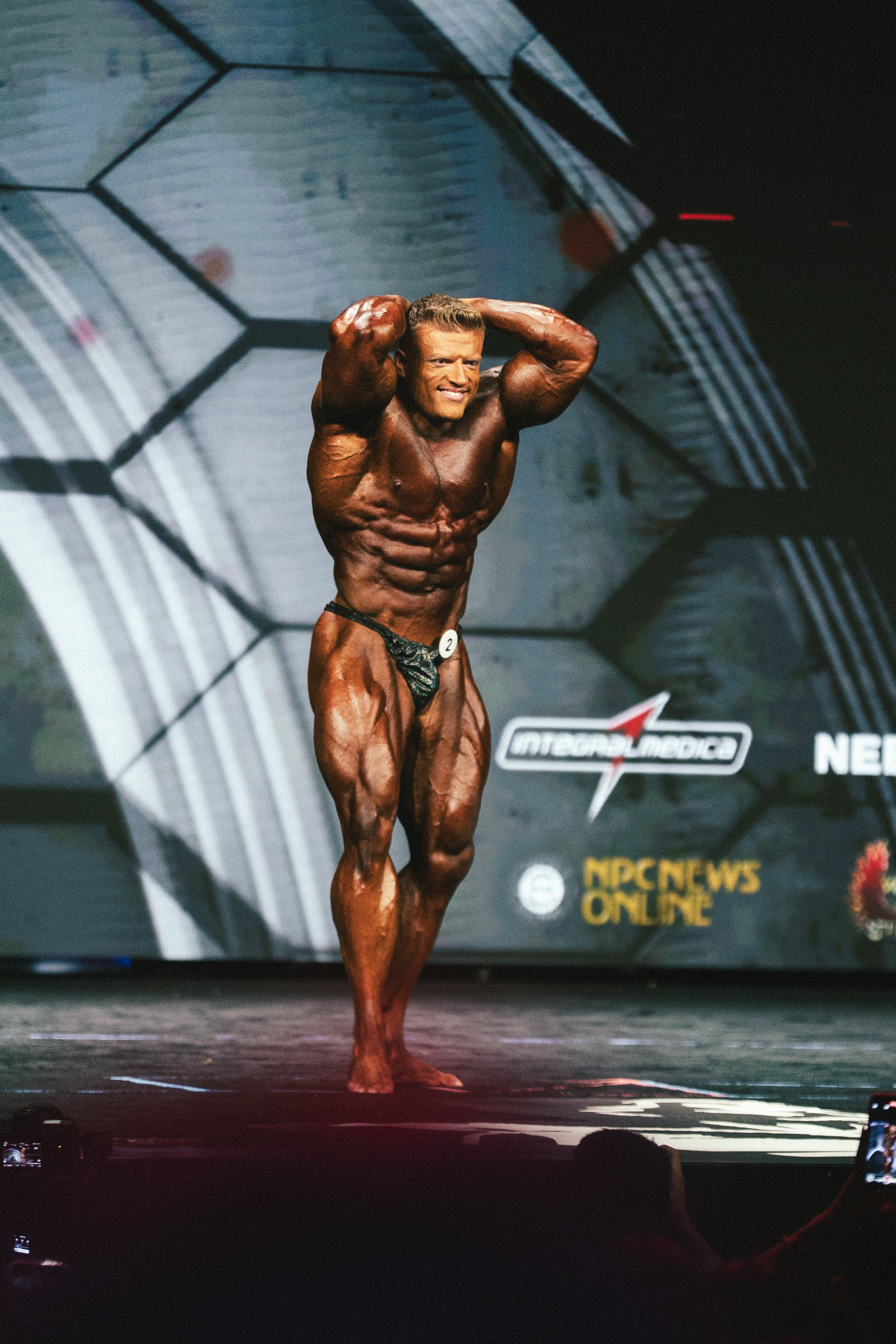Tags: Muscle building
For people who follow a vegan diet, building muscle in bodybuilding can be more difficult. Nevertheless, successful muscle growth is possible for vegans – if some important points regarding muscle building nutrition, supplements, and training planning are observed.
Reasons that make muscle building difficult
1. Low biological value of plant proteins
Plant-based proteins often do not contain all the essential amino acids that are important for muscle building.
2. Low protein availability
Plant-based proteins sometimes contain nutrients that slow down protein absorption . Furthermore, they are often more difficult to digest.
In our article on proteins in bodybuilding and strength training you will learn everything about the role of proteins in muscle building, optimal amounts and the best sources.
3. Lack of nutrients
Both macronutrients (protein, carbohydrates, healthy fats) and micronutrients are essential for strength training, muscle building, and competition preparation.
Vegans tend to be more prone to micronutrient deficiencies and often need to supplement these in higher amounts. Important nutrients include, for example:
- Vitamin B12
- Iron
- Zinc
- Omega-3 fatty acids
4. Low creatine intake
Creatine is only found in animal products, especially in red meat. It serves as an important energy source during strength training and supports faster muscle growth.
Vegans should supplement with creatine to benefit from its performance-enhancing effects.
5. Calorie density of plant-based foods
Plant-based foods often contain less protein per 100g than animal products. To reach the necessary amount of protein, vegans usually have to eat larger quantities. At the same time, many vegan products are high in fat, increasing the total calorie intake – an important factor in a muscle-building training plan or during a diet phase.
Vegan Protein Sources in Bodybuilding
- Vegan protein powder (pea protein isolate, rice protein isolate, soy protein isolate)
- Legumes such as lentils, chickpeas, tofu, tempeh
- Nuts such as almonds, peanuts, chia seeds
- Seitan
- Soy yogurt
- Plant-based meat alternatives, such as lupine
But beware: The fat content is always significantly higher in vegan protein sources than in animal-based ones. Especially when dieting, the overall calorie balance must not be neglected.


